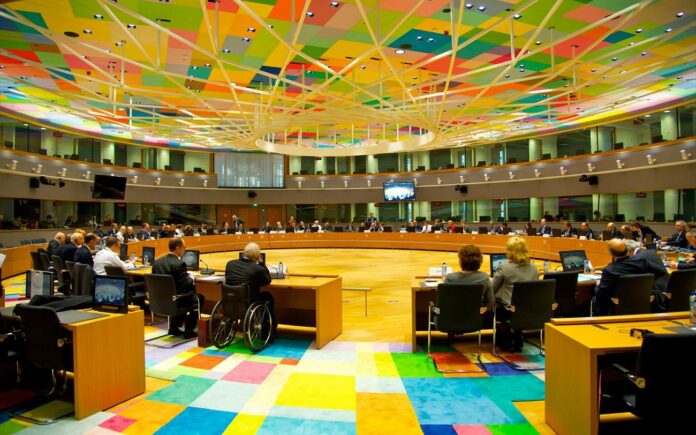By N. Bellos
[email protected]
No substantive progress was reported at Thursday’s Eurogroup meeting towards jumpstarting negotiations aimed at concluding the now delayed second review of the Greek program (third bailout), despite the public pleasantries later expressed by European officials over Greece’s economic performance in 2016.
Creditors are demanding pre-emptive austerity measures to ensure that crisis-battered Greece meets fiscal targets after 2018, something that the embattled leftist government in Athens has refused to consider. The latter finds itself solidly behind its primary center-right political rival in opinion polls and more-or-less isolated on domestic political landscape.
As “N” reported earlier on Thursday amid the ongoing Eurogroup session, creditors have now coalesced around the position that new austerity measures as necessary. The development emerged after the EU Commission was the last creditor to align its position with the opinion expressed by the IMF.
According to reports, French Finance Minister Michel Sapin was the only Eurozone official to offer a differing view — sans the Greek side, of course — saying that although he favors the detailing of austerity measures that would be taken if necessary, he is against legislating the measures beforehand.
Although the French position echoed Athens’ proposal for a compromise, the “lame duck” status of the current Hollande government and the French Socialists’ dim prospects in the upcoming presidential election minimized the impact of Sapin’s support.
Speaking to reporters afterwards in the evening, Greek FinMin Euclid Tsakalotos said
“you cannot demand a country legislate something that it will do (after) 2019 … European and democratic values are sidelined as a result,” while warning that such a process would weigh on future European governments.
The impasse towards closing the second review was also demonstrated by the fact that no date was set for a return of creditors’ representatives to Athens to resume negotiations. No reference was made at subsequent press conference either.
Before the Eurogroup began, creditors’ representatives met and reportedly agreed that a most recent letter by Tsakalotos was not aligned with the position expressed by EZ partners and institutional lenders.
The leftist Greek government mostly referred to the length and level of primary budget surplus targets (after 2018), whereas creditors cited the need for legislation in the present to guarantee the fiscal targets after 2018 — the year that the bailout ends in August.
A subsequent meeting between Tsakalotos and the rest of the Greek delegation with creditors’ representatives was later described as unproductive, with both sides insisting on their positions.
A subsequent meeting between the Greek delegation and Eurogroup chairman Jeroen Dijsselbloem and EWG president Thomas Wieser also failed to record any progress or compromise, reports state.
Nothing changed, as expected, during a latter meeting between German FinMin Wolfgang Schaeuble and the Greek side, represented by Tsakalotos and Alternate FinMin Giorgos Houliarakis. Going into the meeting, in fact, Schaeuble commented that Athens must meet its obligations.
Laudatory statements by Dijsselbloem about the Greece’s economic performance, after the Eurogroup, failed to gloss over the fact that no positive communiqué was issued.
The Dutch FinMin was quoted as saying that the Greek economy is recovering faster than expected, with Athens set to surpass 2016’s fiscal targets. “We encourage them to continue in this way and implement reforms,” he said.
Nevertheless, he acknowledged that the biggest obstacle was in the demand to legislate the measures now, while also referring to other “open issues”.
“The end of a program is always more difficult,” he added.
He declined to answer press questions over the possible return of negotiators to Athens or over the issue of primary budget surplus targets.
EU Commissioner Pierre Moscovici appeared reassuring, referring to a “good discussion” in the Eurogroup that allowed for future steps with “optimism”, while merely adding that a decision on when negotiators will return to Athens will come soon.
In more substantive comments, both men made it clear that there was no chance of European creditors disengaging from the IMF on the Greek program.
The inconclusive result of Thursday’s Eurogroup means that unless creditors’ representatives return to Athens by early February, then an unofficial deadline to conclude the second review by the Feb. 20 Eurogroup meeting will be missed. European officials have warned that Feb. 20 is essentially the last “open date” before an extended election period begins in several Euro zone member-states, something that will bump the review far down the priority list of European lawmakers.














